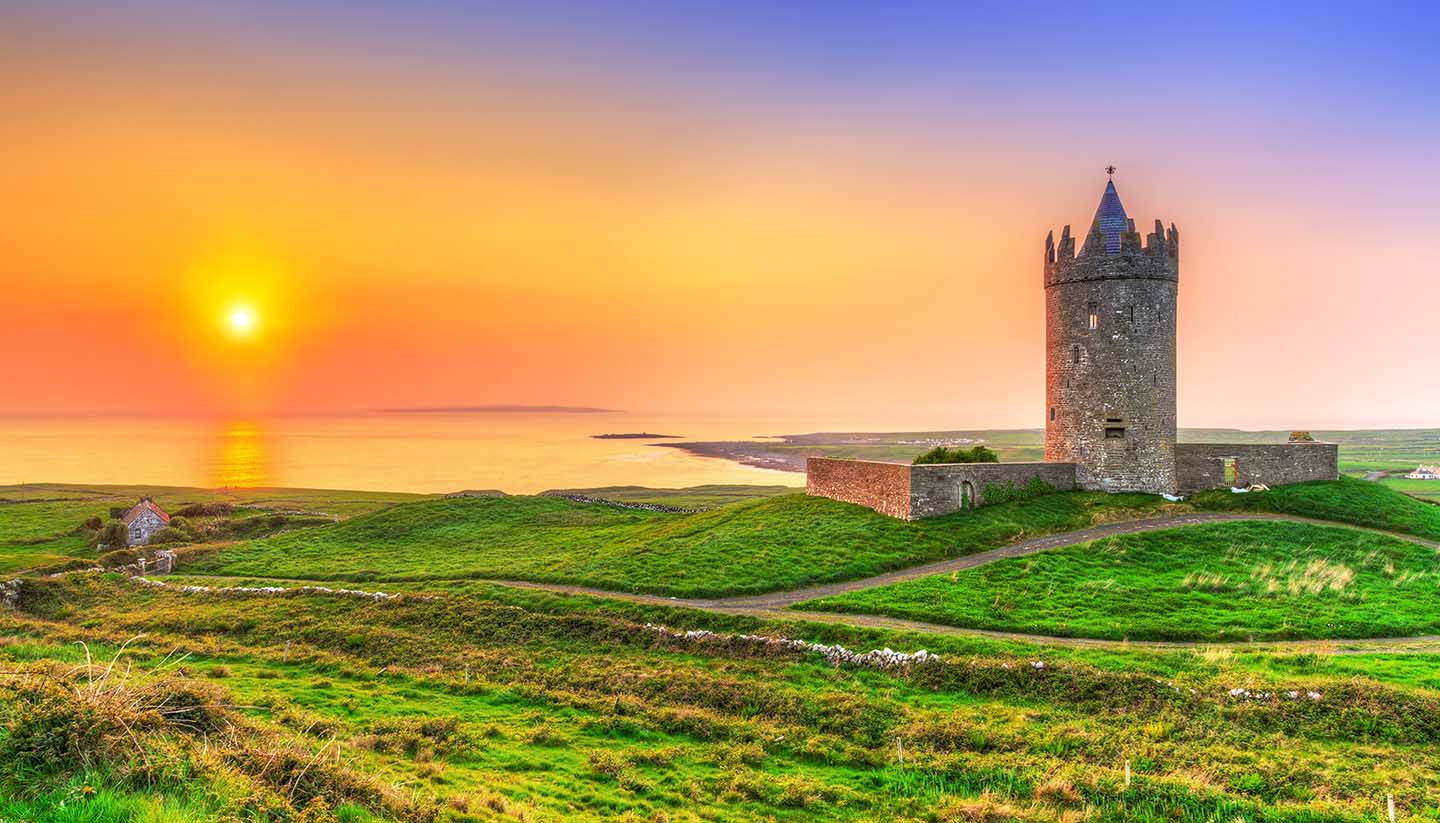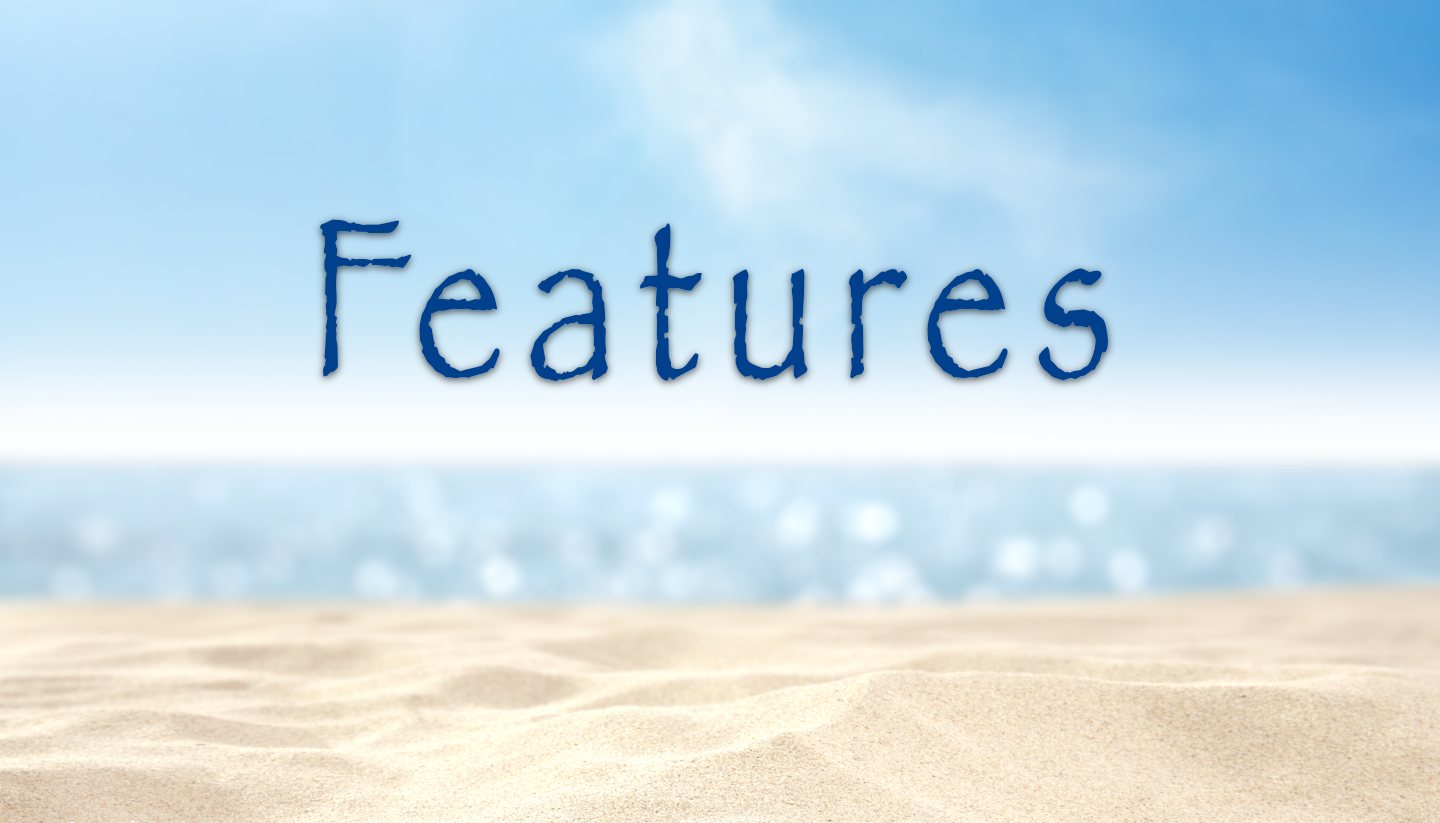Ireland travel guide
About Ireland
Ireland is one of the globe’s most singular travel destinations, a feisty, twinkling country far more famous for the sum of its parts than for any specific sight or attraction. Its landscapes are raw, its cities are animated and its history holds endless tales of adversity. Tying all this together is the Irish character, a fabled combination of bright-eyed bonhomie and bar-room banter: there’s good reason why the planet’s full of Irish pubs.
Lovable Dublin falls naturally as the most popular option for first-time visitors, although for all the capital city’s stately architecture and riverside charm, it only partly hints at what the wider country has to offer. The real spirit of today’s nation might be up for debate – it’s as likely to be found in a Connemara village as a Cork street scene – but searching for it is hugely enjoyable.
It’s often said that there are two Irelands. Despite its economic woes, 21st-century Ireland is a modern destination, full of fresh creativity. At the same time, of course, it’s somewhere rooted in the strongest of traditions, a country marked by humour, hospitality and more than the occasional late night. The craic of legend isn’t generally hard to find.
With all this in mind, it’s perhaps no surprise that Ireland caters for such a broad range of interests. Those in search of windswept hikes, Celtic relics and fiddle-and-song pubs will be well sated, but so too will those looking for on-trend gastronomy, family-friendly attractions or slick hotels. The country may be small but its cultural impact worldwide continues to be enormous, and this is due to far more than just a romantic notion of how it used to be.
Various icons and images enjoy close associations with Ireland (see everything from craggy peninsulas to pints of Guinness) but the real beauty of the country is the fact that it transcends every cliché that people throw at it. Its potential for adventure – for real, blood-pumping adventure – is all too often overlooked, while for those who just want to take it easy, the options are copious.
Key facts
70,182 sq km (27,097 sq miles).
4,713,993 (UN estimate 2016).
69.7 per sq km.
Dublin.
Republic.
President Michael D Higgins since 2011.
Taoiseach (Prime Minister) Micheál Martin since 2025.
Travel Advice
Before you travel
No travel can be guaranteed safe. Read all the advice in this guide. You may also find it helpful to:
- see general advice for women travellers
- read our guide on disability and travel abroad
- see general advice for LGBT+ travellers
- read about safety for solo and independent travel
- see advice on volunteering and adventure travel abroad
Travel insurance
If you choose to travel, research your destinations and get appropriate travel insurance. Insurance should cover your itinerary, planned activities and expenses in an emergency.
About FCDO travel advice
The Foreign, Commonwealth & Development Office (FCDO) provides advice about risks of travel to help you make informed decisions. Find out more about FCDO travel advice.
Get travel advice updates
Sign up to get email notifications when this advice is updated.
Follow FCDO:
This information is for people travelling on a full ‘British citizen’ passport from the UK. It is based on the UK government’s understanding of the current rules for the most common types of travel.
The authorities in Ireland set and enforce entry rules. If you’re not sure how these requirements apply to you, contact the Irish Embassy in the UK.
Passport and ID requirements
British nationals are not legally required to show a passport to enter Ireland, but it may be useful to carry in case you need to prove your identity.
Irish immigration officers are entitled to ask for proof of British nationality in the course of their work. Ferries and airlines may ask for ID. Check your carrier’s conditions of travel.
Check the Ireland Citizens Information Board for guidance on acceptable ID.
Visa requirements
You can visit and remain indefinitely in Ireland under the Common Travel Area rules. British nationals do not need a visa or residency permit to live, work or study in Ireland.
Although Ireland is in the EU, it is not part of the Schengen area, and Schengen rules do not apply.
Vaccine requirements
For details about medical entry requirements and recommended vaccinations, see TravelHealthPro’s Ireland guide.
Customs rules
There are strict rules about goods you can take into and out of Ireland. You must declare anything that may be prohibited or subject to tax or duty.
Travelling with pets
Read about travelling to the EU with your pet and check the Irish entry requirements for pets.
Taking money into Ireland
Declare cash or travellers cheques if the value is 10,000 euros or more. You will get a certified declaration to show you brought it in with you. If you do not, your money could be seized when you leave.
Terrorism
There is a high threat of terrorist attack globally affecting UK interests and British nationals, including from groups and individuals who view the UK and British nationals as targets. Stay aware of your surroundings at all times.
UK Counter Terrorism Policing has information and advice on staying safe abroad and what to do in the event of a terrorist attack. Find out how to reduce your risk from terrorism while abroad.
Terrorism in Ireland
Terrorist attacks in Ireland cannot be ruled out.
Demonstrations
Demonstrations, political gatherings, or marches can take place with little or no warning, particularly in cities.
Whilst most demonstrations are peaceful, they can cause disruption, including to transport routes. If you’re near areas where they are taking place, you should remain aware of what is happening around you and follow the advice of the police and local authorities.
Crime
Take precautions to reduce the risk of bag-snatching or pickpocketing. Avoid carrying valuables and large amounts of money. Lock your vehicle and park where possible in a secure car park. Most incidents occur in the larger cities.
Laws and cultural differences
Illegal drugs
Possession of even small quantities of drugs, including cannabis, carry severe penalties.
You should expect a long jail sentence and heavy fines for possessing, using or smuggling illegal drugs, including when transiting through the airport. Do not offer to carry any items for anyone else when entering or leaving Ireland.
Airports in Ireland have excellent technology and security for detecting illegal items. This is also used to scan the baggage of transiting passengers.
Transport risks
Road travel
If you are planning to drive in Ireland, see information on driving abroad and check the rules of the road in the RAC’s Ireland guide. The guide lists driving regulations and other legal requirements you need to be aware of.
Before you travel check that:
- your destination can provide the healthcare you may need
- you have appropriate travel insurance for local treatment or unexpected medical evacuation
This is particularly important if you have a health condition or are pregnant.
Emergency medical number
Dial 112 or 999 and ask for an ambulance.
Contact your insurance or medical assistance company quickly if you’re referred to a medical facility for treatment.
Vaccine recommendations and health risks
At least 8 weeks before your trip:
- check the latest vaccine recommendations for Ireland
- see where to get vaccines and whether you have to pay on the NHS travel vaccinations page
See what health risks you’ll face in Ireland.
Medication
You can use a UK prescription to get medicines, including special food required for medical reasons, from pharmacies in Ireland. You will have to pay in full for any prescription medicine.
The legal status and regulation of some medicines prescribed or bought in the UK can be different in other countries. If you have questions, contact the Irish Embassy in the UK.
Read best practice when travelling with medicines on TravelHealthPro.
Healthcare in Ireland
British people who live in the UK can access state healthcare when visiting Ireland. See guidance for visitors on healthcare in Ireland. FCDO has a list of medical providers in Ireland.
See guidance on healthcare if you’re living or studying in Ireland.
Travel and mental health
Read FCDO guidance on travel and mental health. There is also mental health guidance on TravelHealthPro.
The Foreign, Commonwealth & Development Office (FCDO) cannot provide tailored advice for individual trips. Read this travel advice and carry out your own research before deciding whether to travel.
Emergency services in Ireland
Telephone: 112 or 999 (ambulance, fire, police)
Tourist SOS
You can get support from Tourist SOS if you are a victim of crime.
Telephone: +353 (0)1666 93 54
Contact your travel provider and insurer
Contact your travel provider and your insurer if you are involved in a serious incident or emergency abroad. They will tell you if they can help and what you need to do.
Refunds and changes to travel
For refunds or changes to travel, contact your travel provider. You may also be able to make a claim through insurance. However, insurers usually require you to talk to your travel provider first.
Find out more about changing or cancelling travel plans, including:
- where to get advice if you are in a dispute with a provider
- how to access previous versions of travel advice to support a claim
Support from FCDO
FCDO has guidance on staying safe and what to do if you need help or support abroad, including:
- finding lawyers and funeral directors in Ireland
- dealing with a death in Ireland
- being arrested in Ireland
- getting help if you’re a victim of crime
- what to do if you’re in hospital
- if you are affected by a crisis, such as a terrorist attack
Contacting FCDO
Help abroad
See how to get help from the UK government abroad including in an emergency.
Help in the UK
You can call FCDO in London if you need urgent help because something has happened to a friend or relative abroad.
Telephone: 020 7008 5000 (24 hours)
Get travel advice updates
Sign up to get email notifications when this travel advice is updated.
Follow FCDO:
Risk information for British companies
The Overseas Business Risk service offers information and advice for British companies operating in Ireland on how to manage political, economic, and business security-related risks.





